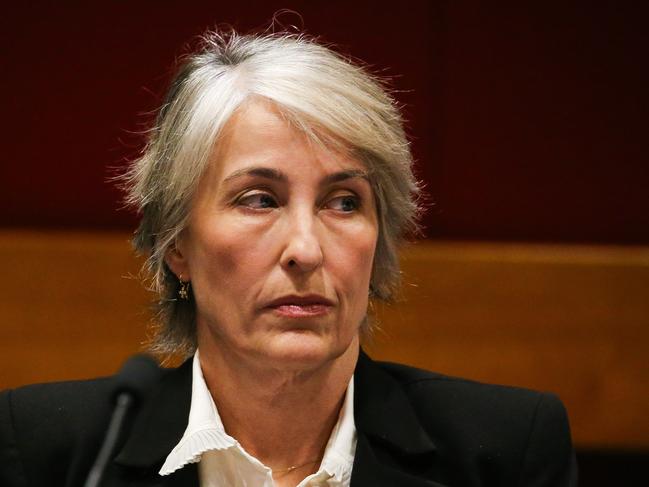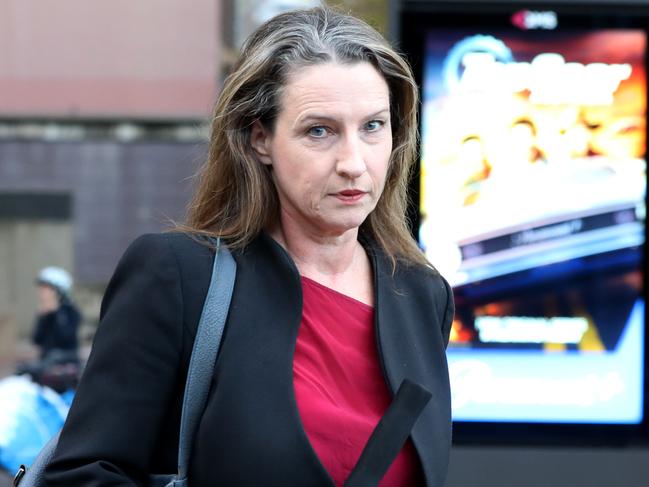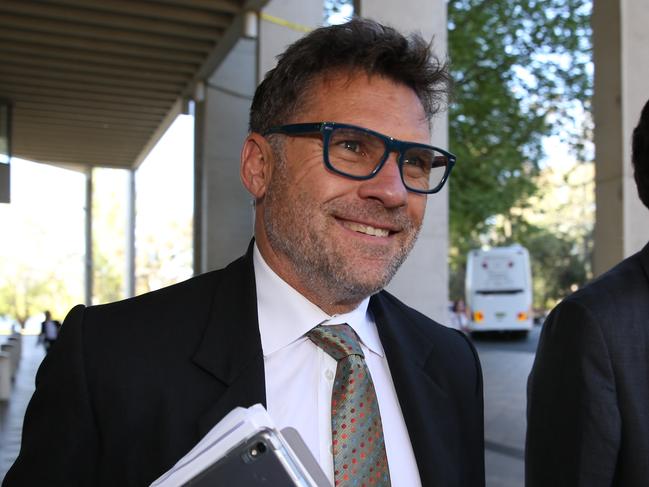Revealed: Sally Dowling SC’s complaint about Judge Peter Whitford
For months, the contents of DPP Sally Dowling SC’s complaint against a judge who criticised her office in court has had the NSW legal fraternity buzzing. Today, the Telegraph reveals its contents.
Police & Courts
Don't miss out on the headlines from Police & Courts. Followed categories will be added to My News.
NSW’s chief prosecutor Sally Dowling SC speculated that a judge may have been influenced by his current and ex partner — both of whom are judges — to fiercely criticise her office in court.
Ms Dowling, the state’s Director of Public Prosecutions, also asked the state’s judicial watchdog to investigate “communications” between the Telegraph and the judge who delivered the scathing attack.
They are among the contents of a complaint that Ms Dowling lodged with the state’s judicial watchdog against Judge Peter Whitford SC.

The Telegraph has obtained a copy of Ms Dowling’s 10 page complaint to the NSW Judicial Commission, which was partially upheld on a number of grounds earlier this month.
Her complaint came after Judge Whitford’s scathing comments in Newcastle District Court last February where he said Ms Dowling’s office repeatedly prosecuted sexual assault cases that were doomed to fail.
He was the second judge to criticise Mr Dowling’s office after Judge Robert Newlinds SC told a case known as “R v Martinez” in December that there appeared to be an “unwritten policy” of prosecuting hopeless sexual assault cases.

In making his criticisms, Judge Whitford referenced the Martinez case but also told the court similar complaints had been made in other sexual assault cases “that have been the subject of reported public and private comment elsewhere”.
Ms Dowling wrote in her complaint that a “reasonable reader” might “speculate” about “the source of” the private comments.
“A person might speculate that the source was another judge of the District Court,” Ms Dowling wrote.
Ms Dowling wrote this could include Judge Whitford’s “former partner” Judge Penelope Wass SC.
It could also have been from “a private discussion” between Judge Whitford and “his current partner”, NSW Supreme Court Justice Belinda Rigg, Ms Dowling wrote.

“It was entirely inappropriate to rely on unattributed and unexplained ‘private comment’ when launching a scathing public attack on the ODPP,” Ms Dowling wrote.
There is no suggestion that either judge influenced Judge Whitford to criticise Ms Dowling’s office and neither were the subject of any complaint.
Yesterday, Ms Dowling told The Sunday Telegraph she pointed out that “it would be open” for the Commission to “make inquiries” into the “private comments” that informed Judge Whitford’s criticisms.
Judge Whitford later revealed to the Commissioner that he was referring private comments that were made in a news article by another judge.
The Judicial Commission found Ms Dowling’s reference to Judge Whitford’s personal life was “provocative and unnecessary”.
Judge Whitford wrote to the Commission that it was a “gratuitously personal” and “intentionally inflammatory” attack on his “private life”.
One legal source said, “I was shocked when I first saw it and remain deeply unimpressed …”
The Commission partially upheld Ms Dowling’s complaint, including that Judge Whitford used his judgment as a “tool” to criticise her office.
However, the Commission ruled the highly repsected judge’s conduct was “an aberration in an otherwise unblemished judicial career” that did not warrant a referral to NSW Parliament.
In her complaint, Ms Dowling also wrote that Judge Whitford’s reference to private comments “provides a basis for the (Commission) to investigate” whether there were communications between the judge and a number of journalists, including “Brenden Hills” from The Sunday Telegraph.

The Commission declined to investigate.
Ms Dowling also lodged a complaint against Judge Newlinds over his comments in the Martinez case, which the Commission upheld.
This included that he made unsupported criticisms of the ODPP and the Commission recommended he take a break from hearing criminal matters.
In her complaint, Ms Dowling wrote that the public airing of the judge’s criticisms had “taken a significant mental toll on me, and also on the staff of my Office.”
“I fear that the damage to my reputation caused by this judgment and its sequelae is irreparable,” Ms Dowling wrote.
“However, I have no recourse either to repair my reputation or to seek redress for the damage occasioned to it.”





